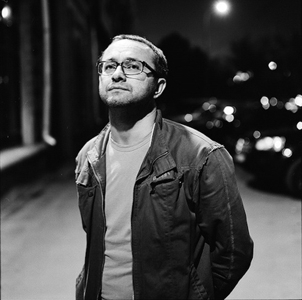Loveless review - eerie thriller of hypnotic, mysterious intensity from Leviathan director
05/17/2017
Russian director Andrei Zvyagintsev has produced another masterpiece in this apocalyptic study of a failed marriage and the subsequent disappearance of a child
Andrei Zvyagintsev’s Loveless is a stark, mysterious and terrifying story of spiritual catastrophe: a drama with the ostensible form of a procedural crime thriller. It has a hypnotic intensity and unbearable ambiguity which is maintained until the very end. This is a story of modern Russia whose people are at the mercy of implacable forces, a loveless world like a planet without the full means to support human life, a place where the ordinary need for survival has mutated or upgraded into an unending aspirational demand for status, money, freedom to find an advantageous second marriage which brings a nice apartment, sex, luxury and the social media prerogative of selfies and self-affirmation. But all of it is underpinned, or overseen, by intensely conservative social norms of Christianity, conformism and nationalism.
Loveless reminded me of the same director’s Elena - and it also has the unflinching moral seriousness of Bergman’s Scenes From a Marriage. The story of a disappearance which betokens some larger, metaphysical dysfunction has something of Antonioni’s L’Avventura – a film whose importance and example continues unabated – and the single, static shot of a school about to let the pupils out may have taken something else from that other touchstone: Michael Haneke’s Hidden. The grim presence in this film of elderly mothers – secular Buddhas of reactionary cynicism who show every sign of inducing their children to become their duplicate – reminded me of Philip Larkin’s lines about man handing on misery to man and it deepening like a coastal shelf.
Loveless is initially the portrait of a failed marriage in its awful final stages. Boris (Alexei Rozin) is a burly, bearded man with a look of a young Fidel Castro who works in sales. He still shares the family apartment with his soon-to-be-ex-wife Zhenya (Maryana Spivak). They quarrel endlessly, united only in their mutual loathing: each has found a new partner, and are both in the first flush of love and sexual infatuation which contrasts with their sour detestation of the existing encumbrance. Boris has a girlfriend whom he has already got pregnant and Zhenya is with a well-off older handsome man who has a grownup daughter. But there is the matter of their son, Alyosha (Matvey Novikov) a shy and unhappy 12-year-old boy who is the basic cause or symptom of their relationship’s collapse. They got married too soon after an unexpected pregnancy.
After Alyosha overhears a horrible argument in their cramped flat, he disappears. The moment when the bathroom door is thrown back after their ugly spat, revealing to us (but not them) Alyosha’s face in a silent scream of tears is utterly devastating: one of the most purely disturbing images imaginable. The couple had already been listening on the radio to news reports about a Mayan cult prophecy about the end of the world being at hand, doomy paranoia given a sort of credibility by the credulous, tightly buttoned commercial world that Boris moves in: he is terrified of revealing his impending divorce to his deeply religious boss. This is their private apocalypse.
Another type of film might tell a story of human compromise, or of a kind of toughly realistic rapprochement between the warring parents as they realise that must join forces at least temporarily to find their boy. Nothing of the sort happens. The terrible calamity throws everything into a sharper, clearer relief. And so far from falling into each other’s arms, or finding any kind of comfort in each other’s desperation, their existing unhappiness is exalted into an ecstasy of rage and self-hate.
How will they find their son? The police are jaded and bureaucratic, like officialdom in another of Zvyagintsev’s earlier films, Leviathan; but while there is still hope of life, the police are happy to cede responsibility to a highly motivated and efficient volunteer group which combs the neighbourhood putting up fliers and asking questions. (No dogs though, which is perhaps odd.) In one unforgettably eerie scene, they search a wrecked, abandoned building in woodland: the kind of interior features in “ruin porn” photographs of Detroit or Nikolaus Geyrhalter’s documentary Homo Sapiens. It is a parodic version of the slightly crummy building that Boris and Zhenya live in and the flashy apartments that they dream of moving to.
Has Alyosha been kidnapped? Zvyagintsev allows us to suspect that with a weird moment in a fancy restaurant where Zhenya is having dinner with her boyfriend. There is an unexplained point-of-view shot of someone hanging about there, trying to pick up an escort. Is this the criminal; is he about to make contact? Did he change his mind at the last moment?
And then, more heartwrenchingly still, the couple are alerted to news from hospitals and morgues: boys dead and alive are reported roughly matching Alyosha’s description, and their ordeal is protracted and intensified. But of course there is a spiritual sense that he had already vanished before literally going missing.
This is a film which confronts us with the most unthinkable of crises and perhaps also challenges the eternal piety and complacency of family life, that having children is a moral verity and duty which is somehow its own reward, which elevates by its very nature and goes beyond the requirement to show and to give love. But the cultivation of love needs the right conditions, the right soil in which to grow, and the Russia of Zvyagintsev’s film looks barren. Loveless may not have the obvious grandeur and reach of his previous film, Leviathan, and is closer to the mordant domestic drama of Elena. But its brilliance and passion are compelling.
Peter Bradshaw
The Guardian
